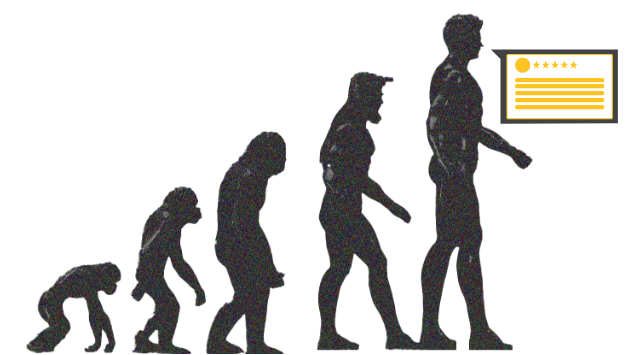Explore how AI revolutionizes customer feedback analysis, from traditional methods to real-time insights that drive growth.

What if your customer feedback strategy is stuck in the past?
For decades, businesses obtained customer feedback by simply asking in person or via phone call. While this is better than nothing, it’s hard to quantify and leaves a lot of room for bias to creep through.
As digital channels emerged, businesses began to use methods like email surveys and website forms to gather feedback, which provided more structure but still didn’t capture the full picture.
Fast forward to 2025, and feedback is received through multiple channels—like reviews, private surveys, and social media. To even come close to leveraging your customer feedback to its full potential, you need to harness the power of AI.
Let's explore the evolution of feedback and how artificial intelligence has transformed how organizations gather, interpret, and leverage customer data to enhance their operations.

The evolution of feedback can be defined into 3 distinct periods; Anecdotal, Inference, and Intelligence Eras.
Feedback in this era was predominantly qualitative. For example, a restaurant owner might have relied on casual conversations with customers at their tables or handwritten comment cards dropped in a suggestion box. While this did generate customer feedback, it was a labor-intensive process that was difficult to track and act on.
Subjective and potentially biased, feedback in this era lacked consistency and a systematic approach. This often resulted in businesses acting on the loudest voices instead of the broader customer base.
Despite its limitations, anecdotal feedback offered valuable emotional context. A comment like, “Your staff made my anniversary dinner unforgettable,” highlights how great service builds lasting loyalty—something data alone can’t capture. This personal connection is often hard to achieve through more systematic methods.
As organizations recognized the limitations of purely anecdotal feedback, the inference era took hold. This phase marked a significant shift towards more data-driven decision-making.
Online surveys, early review platforms like Yelp and TripAdvisor, and basic analytical tools such as Google Analytics and early versions of SurveyMonkey became prevalent. This made it easier for customers to leave feedback and for businesses to expand their data collection. While still largely qualitative, businesses could infer broader trends from customer feedback.
Despite attempts to quantify feedback, the quality of insights depended heavily on the breadth of data. Many businesses relied on a small, vocal group of customers willing to fill out surveys or leave reviews, leading to data that wasn’t always representative of the broader customer base. While these tools helped businesses infer general trends, the feedback often lacked depth and precision, and there was a risk of overgeneralizing from limited information.
The inference era represented a crucial stepping stone, bridging the gap between purely anecdotal feedback and the data-driven insights of today.
Artificial intelligence has revolutionized how businesses gather and analyze customer feedback. AI-powered tools, equipped with natural language processing (NLP) and machine learning, can process thousands of data points within seconds, uncovering patterns invisible to human analysts.
AI tools that integrate feedback from numerous touchpoints on a central platform are now the common standard. These tools allow you to leverage real-time feedback from various sources like social media, online reviews, and private surveys. Viewing all your feedback together is essential to painting a holistic picture of your brand's reputation.
Feedback can then be quantified and analyzed through machine learning. Methods like AI Topic analysis and sentiment analysis can categorize your data by the most-talked-about topics and produce insights that reflect true customer sentiment at scale.
Even though these tools exist today, not every business is utilizing them to enhance their business.
Artificial intelligence can provide you with the knowledge to improve your customer’s experience. Some benefits include:
The progression of customer feedback through the Anecdotal, Inference, and Intelligence eras reflects a profound shift in how businesses understand their customers.
By leveraging AI-powered analysis, companies can react in real-time to customer concerns, minimize biases, and uncover deep insights that drive meaningful improvements. As we look to the future, it's clear that embracing these advanced feedback systems isn't just an option—it's a necessity for businesses aiming to thrive in an increasingly competitive and data-driven world.
I am originally from Ludlow, Vermont, and recently moved to the Burlington area. I have a BA in political science from Union College and a background of working at startups in finance and SaaS. In my free time, I enjoy skiing, biking, reading, and being around water—anything from sailing, water-skiing, or just floating! I love music and going to concerts, especially hip-hop and rock & roll.
Bite-sized, to-the-point, trend-driven local marketing stories and tactics.
U3GM Blog Post Comments